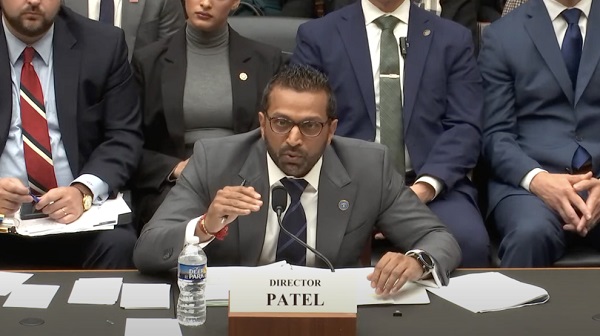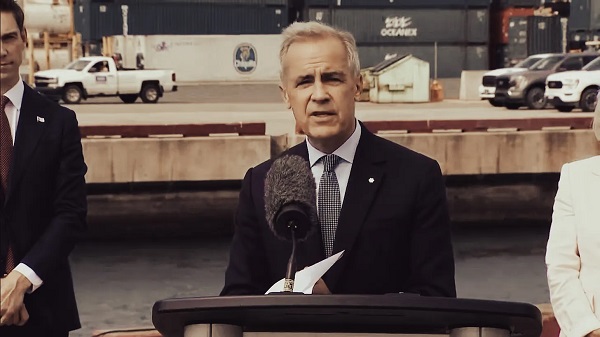City of Red Deer
City of Red Deer considering future with RCMP.. Police Review on Tuesday

From The City of Red Deer
City Council to discuss Police Review on Tuesday
City Council will discuss the Police Review at a Special Council Meeting on Tuesday, December 3, 2019 beginning at 9:30 a.m.
In November 2018, City Council directed Administration to undertake an independent review of policing services in Red Deer. The review is comprised of two parts, a Governance Review that identifies the opportunities and challenges with various policing operating models, as well as a Service Review with recommendations on enhancing services with the existing RCMP contract.
“The Police Review provides a comprehensive and independent look at delivery options for policing services in Red Deer,” said Paul Goranson, Director of Protective Services. “The report does not make a recommendation on a preferred model but identifies opportunities and challenges with either option.”
As part of the Service Review, Red Deer was compared to other cities with either RCMP contracts or their own municipal police service. The report shows that the cost of policing in Red Deer is comparable to other similar sized cities, while the Red Deer detachment has higher caseloads per full time equivalent employee.
“The Service Review makes eight recommendations to enhance services currently provided, however further study is required before implementation,” said Goranson.
The budget for the Police Review was approved at $200,000.
For more information, review the following Q & A.
Police Review: Service Review and Governance Review
In November 2018, City Council directed Administration to undertake an independent review of policing services for Red Deer. The review comprises of two parts, a Governance Review that identifies the opportunities and challenges with various policing operating models, as well as a macro Service Review with service recommendations for the existing model with the RCMP contract.
Governance Review:
- What policing operating models were evaluated as part of the Governance Review?The review looks at police governance options highlighting the opportunities and challenges with the existing RCMP contract and a Municipal Police Service.
At the onset of the review, additional governance options were considered. These included a hybrid model and a regionally-shared police service, however both were removed as standalone options in June 2019. The regionally-shared police service was considered a future expansion of a Municipal Police Service, and the hybrid option was not materially different than the contract with the RCMP or a Municipal Police Service.
Both the RCMP contract and the Municipal Police Service offer opportunities for hybrid policing through tiered policing and obtaining other specialized services from other police services.
- How were the models evaluated under the Governance Review?City Council identified three categories to be considered for evaluation: governance and oversight, operating and capital costs, and operations management. Each model (both the contract with RCMP and the Municipal Police Service) were evaluated with this criteria.
- Does the Governance Review make a recommendation in favour of one model?No, the Governance Review does not recommend one model over another. The report identifies challenges and opportunities with both models.
For example, under governance and oversight, the report indicates that The City of Red Deer, through a police commission could have greater local control over operational priorities with a Municipal Police Service. However, under the RCMP model, The City has significantly less risk and liability.
For operating and capital costs, The City, with the RCMP model, currently receives a 10 per cent federal subsidy. If a Municipal Police Service was established, the subsidy would be eliminated and there would be one time transition costs as well as a higher ongoing operating cost.
Under operations management, the RCMP model allows for access to specialized units, training and additional resources. With a Municipal Police Service, these services would be provided internally or through agreements with other police services.
4. What are the cost differences between the two policing models?
The RCMP operating costs are projected to be $43,755,000 in 2023. A Municipal Police Service operating costs are projected to be $50,899,000 with transition costs projected at approximately $13,583,000. These numbers are estimates only and could change based on a variety of factors.
Service Review:
- How does Red Deer compare to other detachments?The cost of policing in Red Deer is comparable to other similar sized cities, however the Red Deer detachment has higher caseloads per full time equivalent employee. Red Deer budgets for 171 RCMP members, which are complemented by approximately 100 City employees with duties that range from traffic and bylaw enforcement, public services, policing support, records management, dispatching calls, and crime analytics.
- A customer satisfaction survey was included as part of the Service Review, what were the results?In spring 2019, customers who either visited the detachment in person or called the police non- emergency line were asked to participate in a short survey about their satisfaction. Participants were asking for services, such as criminal record checks, police certificate or to report a crime. Overall, 92 per cent of respondents indicated that they were either satisfied or very satisfied with the services received.
- What recommendations were made as part of the Service Review?The consultant identified the following opportunities to consider as ways to enhance services provided under the RCMP contract:
- Expansion of a tiered policing model to manage labour and associated personnel costs
- Alternative service delivery for police checks and collision reporting
- Use of technologies to increase the efficiency of officers
- Achieve full complement of planned officers or reallocate funding to other policing priorities
- Greater use of community policing and investment in prevention
- Expanded use of intelligence led policing
- Establishment of service level standards
- Monitoring and reporting of service level performance to counter perceptions and drive improvements
Further study is required prior to implementation of some of the above opportunities.
City of Red Deer
City of Red Deer Employee Honoured with Bob Stollings Memorial Award for Outstanding Contributions

Annette Scheper, Community & Program Facilitator in the Safe & Healthy Communities Department is The City’s 2025 recipient of the Bob Stollings Memorial Award.
The Bob Stollings Memorial Award is given out each year to a City employee who displays outstanding performance in alignment with The City’s RISE cornerstone values – respect, integrity, service and excellence. Nominations for the award are submitted by fellow coworkers detailing the employee’s achievements professionally and interpersonally, along with letters of support. The award is considered a great honour among City staff.
With an impressive 22-year career, Annette has played a pivotal role in shaping Red Deer’s cultural and special events landscape. Her leadership and innovation have brought thousands of successful events to life, creating lasting traditions that enrich the lives of residents. Her commitment to excellence and resourcefulness has ensured that community initiatives are inclusive, accessible, and impactful.
One of Annette’s most notable achievements is the development of the Community Loan Program, which provides essential resources for local groups, contributing an annual value of $86,778.95 back into the community. In addition, she has successfully led and executed a variety of large-scale events, demonstrating remarkable problem-solving skills and a dedication to sustainability. From creating elaborate event designs with repurposed materials to managing complex logistics, she continuously sets the standard for excellence.
“Annette exemplifies the best of our organization,” said City Manager, Tara Lodewyk. “Her unwavering dedication, innovative thinking, and ability to bring people together has made a profound impact on our city. This award is a testament to her hard work and passion for creating meaningful experiences for our community.”
The Bob Stollings Memorial Award was first established in 1985 and is presented every year to honour Robert (Bob) E. Stollings, a loyal and dedicated City employee from 1960-1984.
City of Red Deer
Red Deer will choose a new Mayor as Ken Johnston decides to step away

It’s a telling detail about the person who leads Red Deer City Council. Always putting the city’s needs ahead of his own, Mayor Ken Johnston has announced his intentions within days of the opening of Nominations for October’s municipal elections,
After 12 years on council, Mayor Ken Johnston has decided against running for a second term as Mayor this fall. Johnson shared his decision in front of colleagues and supporters in a touching announcement on Wednesday.
At 71 years old, Johnston remains vibrant, passionate and healthy. He says that’s exactly why he and his wife Carolyn have decided now is the right time to start their next stage of life together.
Mayor Johnston listed a number of highlights and achievements he can look back on, including his help advocating for the redevelopment of Red Deer Regional Hospital, the growth of Red Deer Polytechnic, and positive moves in Economic Development.
All these lead of a feeling of ease about the decision to step away, though affordable housing and a permanent shelter for the homeless remain pressing concerns.
With about 8 months remaining in his term, Mayor Johnston is planning to push hard to move the needle on these housing issues.
“We’re looking forward to some more work and we’ll be going to the community shortly about it. So I still have optimism that maybe before the term is out we can have an announcement.”
This is the second major political announcement in Central Alberta in the last number of days. Earlier this week Red Deer Mountain View MP Earl Dreeshen announced he won’t be running in the next federal election.
-

 Automotive2 days ago
Automotive2 days agoMichigan could be a winner as companies pull back from EVs
-

 International1 day ago
International1 day agoFrance records more deaths than births for the first time in 80 years
-

 National1 day ago
National1 day agoChrystia Freeland resigns from Mark Carney’s cabinet, asked to become Ukraine envoy
-

 Business1 day ago
Business1 day agoOttawa’s so-called ‘Clean Fuel Standards’ cause more harm than good
-

 Energy1 day ago
Energy1 day agoA Breathtaking About-Face From The IEA On Oil Investments
-

 Alberta2 days ago
Alberta2 days agoParents group blasts Alberta government for weakening sexually explicit school book ban
-

 Business1 day ago
Business1 day agoThe Truth Is Buried Under Sechelt’s Unproven Graves
-

 International1 day ago
International1 day agoFBI Director Patel challenged on handling of the Epstein files during oversight hearing






